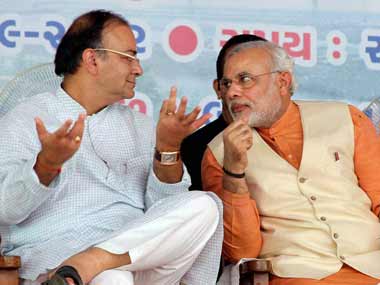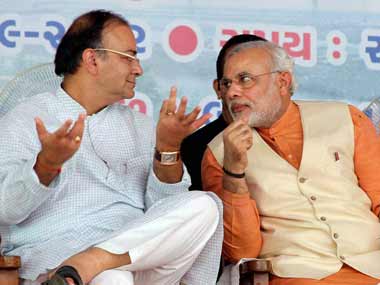Prime Minister Narendra Modi-led NDA government seems determined to push ahead with policy changes through emergency ordinances and won’t let the lack of numbers in the Rajya Sabha stand in its way. Having failed to get the approval of the Upper House to pass crucial bills, the government has already issued eight ordinances in 225 days since assuming office — an average one every 28 day. In December alone, the Modi government passed three crucial ordinances, with respect to tweaking the land act, increasing FDI in insurance and facilitating the coal auction, which could set it up on a collision course with opposition parties. Another ordinance regularizing e-rickshaws in Delhi has also been issued and and earlier this week, President Pranab Mukherjee promulgated the eighth ordinance of Modi government which will merge person of Indian origin (PIO) and overseas citizenship of India schemes and allow PIOs to avail lifetime Indian visas. Article 123 of the Constitution allows the government to recommend the President to pass an ordinance if Parliament is in recess and to meet emergent needs. But increasingly, the government is coming under attack for creating what critics call the “Ordinance Raj”, who accuse the government of bypassing Parliament’s lawmaking powers, only because it is in a minority in the Rajya Sabha. [caption id=“attachment_2024323” align=“alignleft” width=“380”]  Can Modi and Jaitley get the Ordinances passed?[/caption] Of the eight ordinances which would have to be cleared in the budget session, two – Insurance and Land Acquisition - would be the most contentious. The decision of the president to question the urgency to amend the land act – a president usually only rubber stamps the government’s decisions – could be the start of a plethora of troubles for the Modi government. After promulgating the ordinance allowing the foreign direct investment in insurance companies to be increased to 49% of equity, the finance minister Arun Jaitley said: “The ordinance announces to the rest of the world, including investors, that this country can no longer wait even if one of the Houses of Parliament waits indefinitely to take up its agenda.” But “No foreign investor will invest 49% in insurance till both Houses of Parliament clear the legislation. Investors are increasingly apprehensive that Indian institutions no longer provide stable decisions or secure property rights.Past investors in telecom and coal blocks have been burned badly , " argues Swaminathan S Anklesaria Aiyar. As Supreme Court lawyer and Constitutional expert Rajeev Dhawan told the Huffington Post : “This kind of statute cannot be the subject matter of an ordinance. It has to be placed before Parliament no matter how rowdy parliament is. It requires discussion.” Though the government is keeping its options open for a joint session of the parliament it is well aware that a joint session can be called only in rare situations and, thus, if that becomes necessary, the government will club a bunch of ordinances for approval. But ordinances must be validated by the next legislative session, or else they lapse. But as Firstpost reported earlier, Modi is adamant to live up to his image of being a strong, decisive and development-oriented reformist leader and offering the excuse of disruptions in parliament would not serve him well, either in the domestic constituency or abroad. But is ordinance really a sign of a strong government resolve? A report in Times of India today points out that Modi’s “governance through ordinance” model is similar to Indira Gandhi’s rule who issued the highest number of 208 ordinances during her premiership, an average one ordinance every 28 days or same as that of Modi who has been in office for just over seven months. But while Modi does not have a majority in Rajya Sabha, earlier Congress regimes did not face any such disadvantage. However, given that the BJP has in the past played spolisport as the principal opposition party in the previous Lok Sabha, it is now being paid back in the same coin in the Rajya Sabha. As columnist Vivek Kaul argues, “the party taking a moral high ground on the issue is rather comical. At the same time, the opposition parties not allowing the Rajya Sabha to function is also not democratic. A major function of the Parliament is to legislate and a Parliament that does not legislate is not fulfilling one of its basic purposes. ..Another important point that needs to be made here is that justifying the promulgation of ordinances just because the UPA government did the same is a rather weak justification. The UPA government is not really a benchmark for anything when it comes to government or governance. The BJP can and needs to do substantially better than that. They shouldn’t be setting their benchmarks so low.”
Of the eight ordinances which would have to be cleared in the budget session, two – Insurance and Land Acquisition - would be the most contentious. The decision of the president to question the urgency to amend the land act – a president usually only rubber stamps the government’s decisions – could be the start of a plethora of troubles for the Modi government.
Advertisement
End of Article


)
)
)
)
)
)
)
)
)



